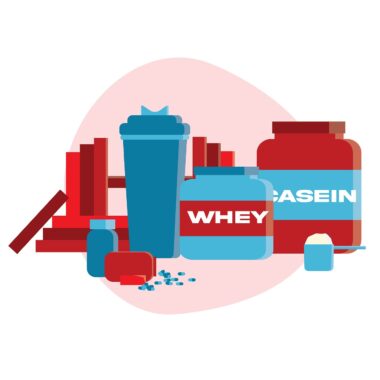How to Avoid Digestive Issues During Workouts
Weightlifting demands a lot from your body, especially when it comes to nutrition. Proper nutrition helps to energize your body for effective training sessions. However, many weightlifters experience digestive problems, which can hinder performance. Understanding how foods interact with your body can help prevent these discomforts. Start by identifying specific triggers; look at what you’ve eaten before workouts. Foods high in fat or sugar can aggravate digestion and cause issues. Opt for easily digestible meals that consist of proteins and carbohydrates, which provide sustained energy without causing gastric distress. Aim to consume meals at least two to three hours before working out. This timeframe allows food to settle, reducing the chances of nausea or bloating during exercise. If that’s not possible, consider small snacks like bananas or nuts, which are lighter on the stomach. Staying hydrated is equally important, as dehydration can exacerbate digestive issues, so drink water consistently before, during, and after workouts. Also, consider keeping a food diary to track how different meals affect your performance. Successful weightlifting requires careful attention to both training and nutrition strategies.
Choosing the Right Foods
To avoid digestive issues while weightlifting, selecting the right foods is crucial. Not all foods digest equally, especially under the stress of training. Incorporating a mix of readily digestible carbohydrates, proteins, and healthy fats can greatly influence your comfort level during workouts. Foods such as oatmeal and rice provide an excellent source of energy without causing cramping. Lean proteins like chicken, turkey, and fish help maintain muscle without heavy feelings in the stomach. High-fiber foods, while beneficial overall, should be consumed in moderation prior to workouts, as they can lead to gas and bloating. Additionally, timing of meals is vital; aim to consume your primary meals at least two to three hours before exercising. For quicker energy, a nut butter on whole grain bread or a protein shake can work well right before lifting, avoiding any stomach issues. Experiment with different pre-workout meals to determine what suits you best. Everyone’s body reacts differently, so finding your routine requires patience and some trial and error. Remember, understanding how specific foods affect you can lead to optimal performance and comfort during your challenging weightlifting sessions.
Hydration and Its Impact
Hydration plays a critical role in avoiding digestive distress when weightlifting. Proper hydration helps to ensure that your body functions correctly, especially during intense workouts. Dehydration can lead to a host of issues, including increased heart rate and depleted energy levels. Aim to hydrate adequately throughout the day, not just before or after workouts. During workouts, sip water consistently instead of gulping large amounts all at once. This habit helps maintain hydration levels and keeps your digestive system functioning smoothly. Additionally, monitor for clear urine as a clear indicator of adequate hydration. Sports drinks can also be useful, particularly for long or intense weightlifting sessions, as they help replenish electrolytes lost through sweat. However, avoid overly sugary versions, as they can cause gastrointestinal upset. It’s essential to strike a balance between hydration and the type of fluids consumed. Experiment with flavored water, herbal teas, or electrolyte-infused options to find what feels best for your stomach. Ultimately, proper hydration enhances your energy levels and overall performance while substantially minimizing the risk of digestive issues during workouts.
Listening to Your Body
Listening to your body is imperative when navigating through diet adjustments to prevent digestive issues during weightlifting. Each individual’s body reacts uniquely to different foods, and being attuned to these signals can help you make informed dietary choices. After each workout, reflect on your physical response. Do you feel heavy, bloated, or fatigued due to what you’ve consumed? Keeping a detailed record of meals and how your body feels post-workout can serve as a guide to identify problematic foods. This habit also aids in recognizing patterns based on various types of workouts and lifting session intensities. Gradually introduce new foods while monitoring how they affect your digestion and performance during workouts. Avoid making drastic changes just before a weightlifting session; instead, allow time for your body to adjust. Good nutrition is essential, but so is your body’s feedback to ensure you maintain peak performance. Over time, this process highlights which foods provide energy without digestive distress, thereby creating a comprehensive plan tailored to your needs. Learning to listen to your body can lead to improved workouts and overall wellness.
Pre- and Post-Workout Snacks
Choosing suitable pre- and post-workout snacks is a vital strategy for preventing digestive issues during weightlifting. Selecting easy-to-digest snacks before workouts fuels your body effectively without causing uncomfortable feelings. Aim for light options such as yogurt with some sliced fruit or a small protein smoothie. These options provide essential nutrients while being gentle on your digestive system. Eating about 30-60 minutes before lifting can ensure your energy levels are optimal without overwhelming your stomach. Post-workout, focus on recovery by choosing snacks that replenish lost nutrients, primarily protein and carbohydrates. A protein shake, Greek yogurt, or a whole grain wrap with turkey suits this purpose well. You can mix and match these options while keeping an eye on portion sizes. Always avoid heavy or greasy foods post-workout since they can slow down the recovery process. Additionally, avoid excess sugars that might cause spikes in energy followed by crashes. A mindful approach to eating around your workout timeframe contributes significantly to workout performance. Testing various combinations of snacks can lead you to predict which choices work best for your routine, fueling energy and minimizing digestive discomfort.
Managing Stress Levels
Managing stress levels through various methods can have a surprising impact on digestive health, especially for weightlifters. Elevated stress may lead to digestive discomfort, which can hinder overall performance during workouts. Practicing stress management techniques such as meditation, deep breathing, or even yoga can substantially enhance your overall well-being. These practices relax your body and allow your digestive system to function more effectively. Furthermore, integrating regular routines in your workout schedule can create a sense of stability, reducing anxiety levels that might spike before lifting. Another way to manage stress is by ensuring adequate rest; training too hard without proper recovery can increase both physical and mental stress. Getting sufficient sleep every night is crucial for optimal recovery and irreducible stress, which can promote gastrointestinal issues. Try to incorporate relaxation strategies post-workout as well, allowing your body to decompress fully. Notifying yourself of how stress affects your body helps create an overall positive mindset while lifting. By cultivating stress management skills alongside your nutrition and workouts, you can see improved performance and a reduction in unwanted digestive problems linked to a stressed-out condition.
Finally, consistently evaluating your dietary choices alongside workout performance will help you to refine your approach to avoid digestive issues during weightlifting. A personalized strategy is vital, allowing for adjustments based on your body’s unique signals and responses. Continuing to experiment and track foods, hydration, and stress management techniques will likely pay off in the form of enhanced lifting sessions and overall well-being. Don’t hesitate to seek guidance from nutritionists or dietitians who specialize in sports nutrition if you need more tailored advice. They can help you develop a meal plan aligned with your fitness goals. Use their expertise to create a foundation for long-term success, focusing on sustainable practices that benefit both performance and health. Remember, understanding your body responds directly impacts your ability to improve and excel in weightlifting. Embrace the journey of learning what works for you. It may take time to find the right balance, but the pursuit will lead to excellent results in digestion, performance, and overall satisfaction with your weightlifting journey.





